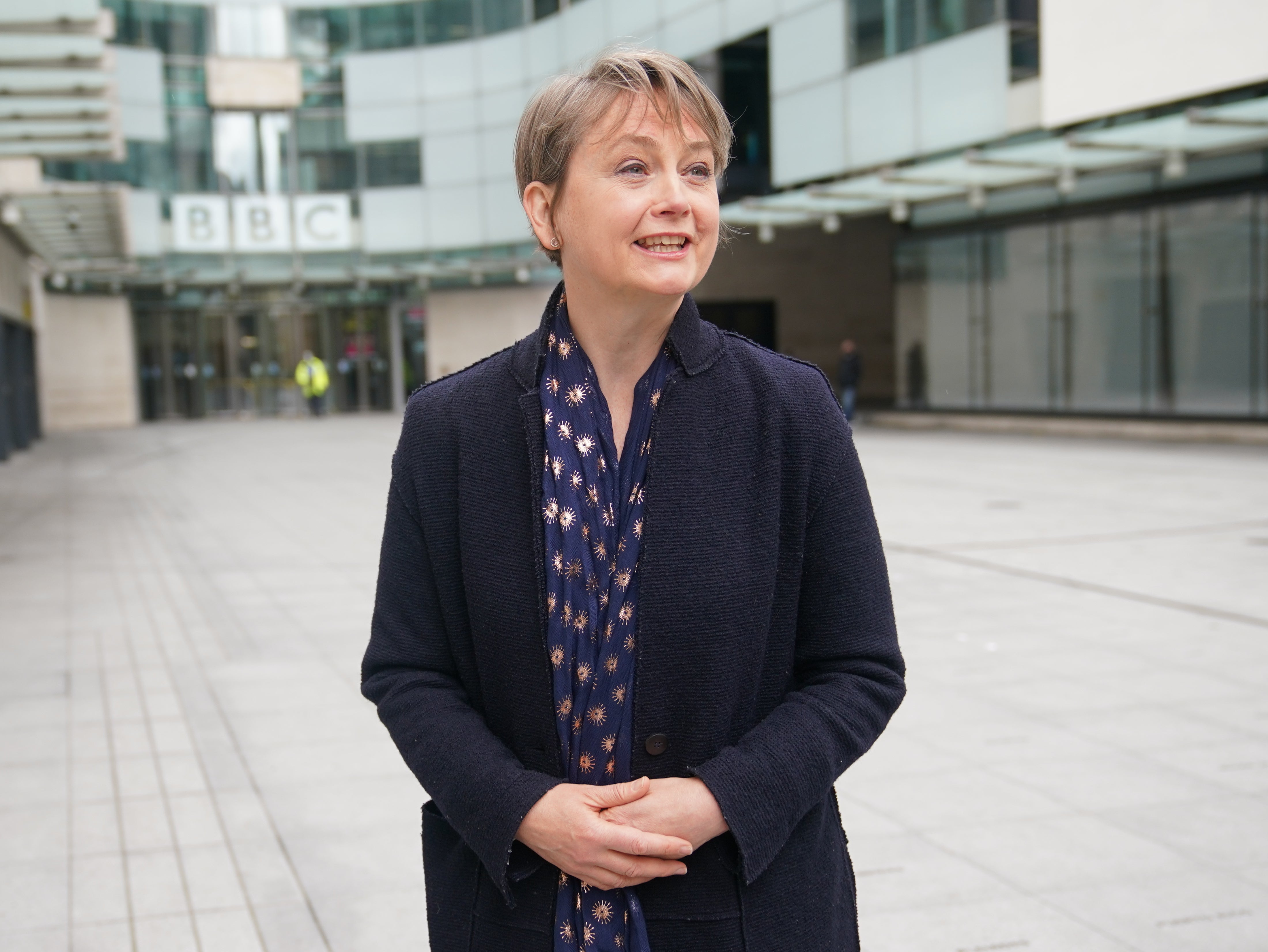Keir Starmer finally has a shadow cabinet that looks like a plausible alternative government
Priti Patel will not survive Yvette Cooper’s assault, predicts John Rentoul


The puzzle was always why Keir Starmer left Yvette Cooper on the back benches in the first place. I suspect it was partly because he took too much advice from Ed Miliband, whose partnership with Ed Balls, Cooper’s husband, was a difficult one. But Miliband’s influence is on the wane, as suggested by his loss of the shadow-business-secretary half of his previous role, leaving him shadowing Alok Sharma on climate change.
Cooper’s exile meant that Rachel Reeves took the shadow chancellor post that Cooper wanted, but shadow home secretary right now happens to be a huge opportunity. Priti Patel is in trouble over Channel crossings. This month’s Conservative Home survey of party members puts her net satisfaction rating at zero, down from plus 25 (itself a low score, compared with Liz Truss on plus 82).
Meanwhile, something remarkable has happened to wider public opinion. An Ipsos Mori poll yesterday put Labour in the lead as the party with the right policies for managing immigration, which I don’t think I have ever seen before. What is even more surprising is that Labour doesn’t have any policies for managing immigration, so the poll is a measure of public disillusion with the government rather than a positive endorsement of the opposition.
This is where Cooper can make her mark. She has years of experience, shadowing Theresa May as home secretary and then chairing the Home Affairs Select Committee, where her questioning of Boris Johnson has always accounted for some of his most difficult moments in his rare interrogations by committee chairs.
She knows the detail and has a good instinct for the weak points in the government’s defences. She is likely to be more ruthless than Nick Thomas-Symonds, who is a good performer in the House of Commons but who hasn’t made an impact on TV. He was wary of attacking Patel from the right, whereas Cooper could be more effective in exploiting the widespread puzzlement – which hardly counts as anti-immigration sentiment – that the government cannot prevent people from arriving uninvited in small boats and staying in the country.
Throughout the pandemic she has been harassing the prime minister over the gaping holes in his border-control policies against the spread of infection. Only this weekend she criticised the government for failing to insist on pre-departure tests for arrivals from countries where the omicron variant had been detected. At the start of the pandemic there was a moment when closing borders was seen as a “right-wing” policy, and the World Health Organisation advised against it, but the polarity quickly switched, with UK Labour arguing for stricter border controls and Jacinda Ardern, Labour prime minister of New Zealand, becoming the hero of progressives worldwide.
If Cooper can bring a similar robustness to the question of Channel crossings, Johnson will be looking for a new home secretary.
Thus Starmer now has a frontbench team that is beginning to make best use of the thin resources at his disposal. Reeves already looks like someone who could do Rishi Sunak’s job, while giving him full scope to make himself unpopular by putting up taxes. David Lammy’s style is a bit theatrical for some tastes, but he is a better fit at foreign affairs than Lisa Nandy, who in turn is a better fit at taking on Michael Gove on her Mastermind special subject, northern towns.
Promotions for Wes Streeting (to health), Bridget Phillipson (to education), Jonathan Reynolds (to business) and Pat McFadden (to shadow chief secretary to the Treasury) represent a definite step up, even if “fresh hungry effective message-carriers in key briefs”, as a Starmer spokesperson put it, is an overheated sales pitch.
The main blot on the landscape of an otherwise confident and effective reshuffle is the near-destruction of Starmer’s relationship with Angela Rayner, the deputy Labour leader, who is directly elected and therefore unsackable. As one Labour former special adviser put it to me, after Starmer started his reshuffle while Rayner was delivering her big speech yesterday on cleaning up politics, “He really hates her, doesn’t he?”
To keep up to speed with all the latest opinions and comment sign up to our free weekly Voices newsletter by clicking here
Some of the colourful expressions emanating from “friends of” Rayner amounted to a declaration of war. “Rayner’s allies on the left of the party” told Alex Wickham of Politico “they doubted whether the rift between the leader and deputy caused by yesterday’s events could be healed”.
Some of Rayner’s frustration is understandable, as she was beginning to add insult to the prime minister’s self-inflicted injuries on the question of MPs’ second jobs and conflicts of interest. But Starmer has asserted his authority. He was obviously worried that, if Rayner were consulted, she would disrupt the changes he wanted to make. As it was, it was obvious that at least one other member of the shadow cabinet was being obstructive, as the reshuffle started yesterday morning and then there was a long gap before any more announcements were made.
In the end, Starmer’s people claimed total victory: “He knew exactly the team he wanted to assemble and was able to announce it in full.” It is certainly true that he now has a shadow cabinet that finally looks like a plausible alternative government.






Join our commenting forum
Join thought-provoking conversations, follow other Independent readers and see their replies
Comments